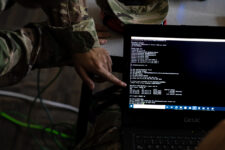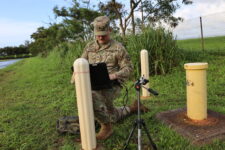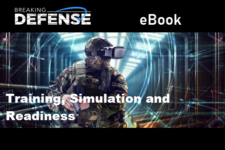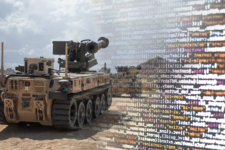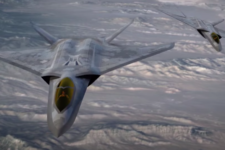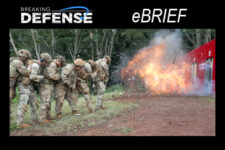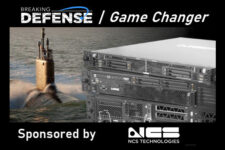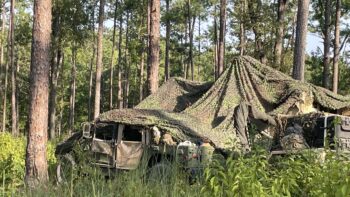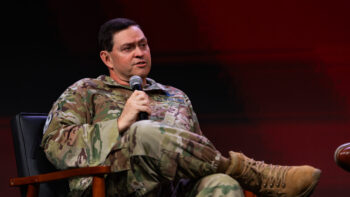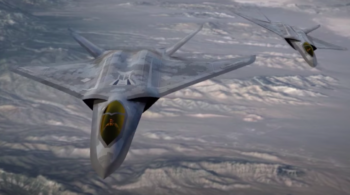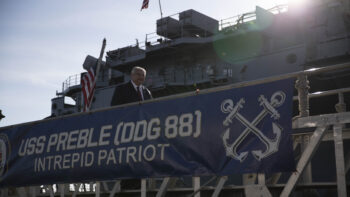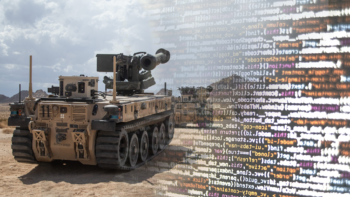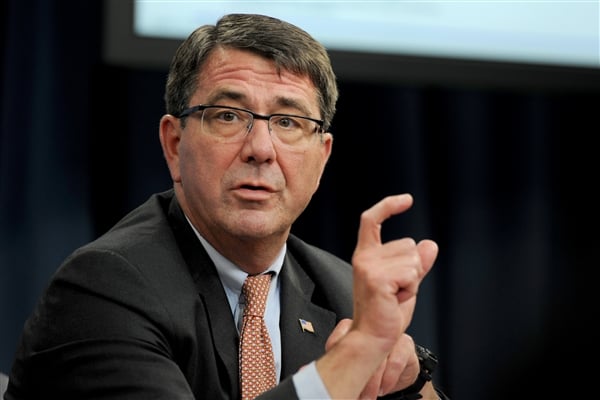
SAN FRANCISCO: Defense Secretary Ash Carter repeatedly refused to confirm or deny reports that he’s recommended the President split the National Security Agency from US Cyber Command. However, reading between the lines of his remarks here at the TechCrunch conference, there are strong hints he might favor separating the two. Meanwhile, back in Washington, Senate Armed Services chairman John McCain promptly pledged to block any nominee to head NSA who wasn’t also being named to command CYBERCOM, as is the current practice.
“No decision has been made,” Carter said. “Ultimately, it will be made by the president…We don’t have any timeline (to make that decision).” That begs the question of whether Carter has made a recommendation to President Obama (which was my actual question at his press conference here), but for a cabinet official to publicly share their private recommendations to the president is poor etiquette at best and, at worst, more than their jobs is worth.
Nevertheless, the way Carter explained the issue here gave some insight into how he’s thinking. He repeatedly emphasized the distinct missions of NSA, an intelligence agency, and CYBERCOM, an operational military command, more than he spoke about their synergy. (The same network vulnerability NSA uses to spy on an adversary, for example, could be used by CYBERCOM to stage an attack). He said CYBERCOM will still get vital intelligence from NSA whether the two organizations shared a commander or not. And he suggested the main obstacle to a separation would be a simple shortage of talented cyber personnel, a corps the Pentagon has been busily growing for years.
“There just haven’t been enough good people to go around and populate two missions,” Carter said, “so we’ve had them both in the same location.”
Carter had come to recruit Silicon Valley geniuses for short tours in the Pentagon as part of the Defense Digital Service. Unsurprisingly, the audience was intensely interested in what happens with NSA, which many here see as an enemy of digital privacy and freedom. One questioner asked point-blank if the president should pardon NSA leaker John Snowden (Carter demurred). But the very first audience question was about splitting NSA from Cyber Command.
“We haven’t made any decisions,” Carter answered. “Why the question arises (is that) at the moment we have the National Security Agency, which is part of the intelligence community.. and CYBERCOM, which is a combat command whose first job is to protect our networks,” he said. “They are separate organizations but we have deliberately managed them in such a way that they have a single director and work closely together.”
“They have separate functions,” Carter told reporters later, “(but) whatever happens in the future, and whatever decisions are made with respect to the management (of NSA and CYBERCOM), they’re going to be interrelated because they both deal with the technology of cyber.”
But separate agencies and commands support each other all the time, Carter took pains to point out. The National Security Agency provides intelligence to the entire military, not just to conjoined twin Cyber Command. “NSA doesn’t just support Cyber Command. It supports Central Command, European Command (etc.),” Carter said. “That relationship will continue with CYBERCOM whatever the managerial circumstances.”
“Obviously, this is a subject that is under discussion both in the executive branch and also, by the way, Congress,” Carter told the press. “It has been going on for quite a while (and) no decisions have been made.”
And, lest you think McCain is the only word on this from Capitol Hill, remember that the House Armed Services Committee version of the National Defense Authorization Act includes language requiring that CYBERCOM and the NSA be separated.
Army halted weapon development and pushed tech to soldiers faster: 2024 in review
The Army spent 2024 pushing its new “transformation in contact” initiative while also pivoting away from several key weapon development initiatives.


